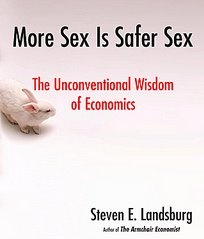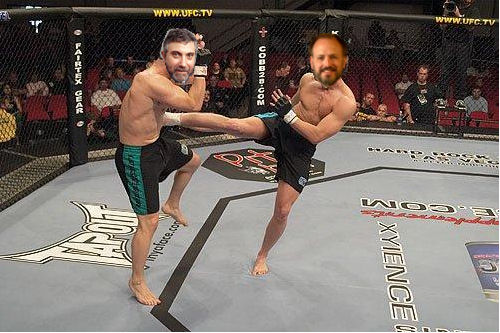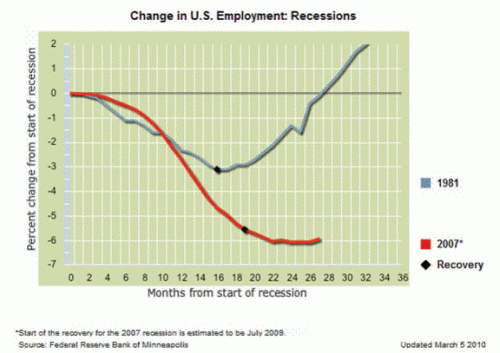In a blog post on what he calls the “Bad Logic of Fiscal Austerity”, Paul Krugman lays the following calculation before the public:
Let me start with the budget arithmetic, borrowing an approach from Brad DeLong. Consider the long-run budget implications for the United States of spending $1 trillion on stimulus at a time when the economy is suffering from severe unemployment.
That sounds like a lot of money. But the US Treasury can currently issue long-term inflation-protected securities at an interest rate of 1.75%. So the long-term cost of servicing an extra trillion dollars of borrowing is $17.5 billion, or around 0.13 percent of GDP.
Yes. That’s the long-term cost of borrowing an extra trillion dollars. (Actually, the cost is even lower than Krugman says it is.) But the long term cost of spending an extra trillion dollars is somewhere in the vicinity, of, oh, about a trillion dollars, or about 7.4% of GDP.
Now you might argue that if some of that spending puts unemployed resources to work, then the true cost of spending a trillion is somewhat less than a trillion, but Krugman, at least here, does not attempt to make that argument. Nor do I expect that even Paul Krugman would dare to argue that an adjustment for unemployed resources could reduce the cost of government spending by roughly 98%.
Krugman is right when he says that borrowing is cheap. But the issue isn’t borrowing; it’s spending—and spending is expensive. It appears that like the President, Krugman wants to divert your attention from spending to borrowing so he can dismiss legitimate concerns without even acknowledging them. It’s a cheap trick. Don’t let either of them get away with it.
Edited to add: In fairness to Krugman, he appears to be imagining that the trillion is never paid back, so that the cost of spending it is simply the debt service of 17.5 billion per year forever. But his column makes it sound like the cost is a single one-time payment of 17.5 billion, which is absurd.
 I once wrote a book called More Sex is Safer Sex”. If you’re wondering what that means, you can read the essence of the argument in Chapter 12 of The Big Questions and/or watch me explain it on video.
I once wrote a book called More Sex is Safer Sex”. If you’re wondering what that means, you can read the essence of the argument in Chapter 12 of The Big Questions and/or watch me explain it on video.












